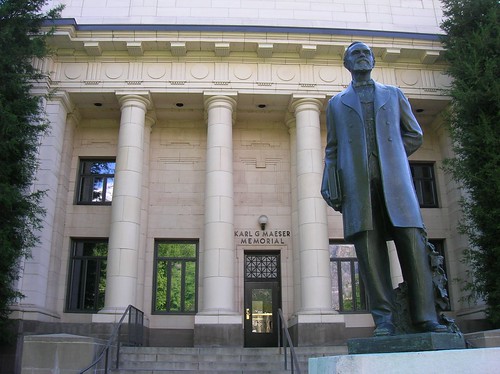
Being a student at Brigham Young Univerisity is a unique experience. There are opportunities here that can not be found at many other higher education institutions. The blending of intellect and faith. Amazing choral performance groups. Professors who actually care about the students. These are all great things that can not be found at many universities today, but they are not the most important opportunities to be found here at BYU. The greatest opportunity students at BYU have is to live by “the honor code.” The honor code is an all encompassing commitment to living a higher moral standard than the rest of the world. It includes dressing modestly, abstaining from drugs and alcohol, living a chaste life, refraining from profane language and being honest in our academic endeavors.
The honor code in part stems from a quote by Karl G. Maeser, the founder of the original Brigham Young Academy. He stated:
“I have been asked what I mean by “word of honor.” I will tell you. Place me behind prison walls—walls of stone ever so high, ever so thick, reaching ever so far into the ground—there is a possibility that in some way or another I might be able to escape; but stand me on the floor and draw a chalk line around me and have me give my word of honor never to cross it. Can I get out of that circle? No, never! I’d die first.”
The honor code gives us a chance to prove our trustworthiness to the world at large. During the past week, however, I was disappointed a little in the students here at BYU who have decided to step outside of the circle so to speak. I had a roommate who had a girl in our apartment past midnight (“That’s against the honor code!”) this week and he didn’t even think anything of it. So many people on campus are not clean shaven or are dressed immodestly. For so long I respected my fellow students because of what we were trying to become here at BYU: People in whom the world can rely on for moral courage. But this week I was disappointed by their behavior. I know it isn’t always easy and I am far from perfect, but it is always worth it. I hope that we all can take a look at our "honor code keeping" and see in what areas we can improve in. Why it may just seem like a stupid list of dos and don’ts, it is the thing that separates us from the rest of the world. It is up to us to be the “city upon a hill” as the Savior commanded when He was on the earth (see Matthew 5:14).



